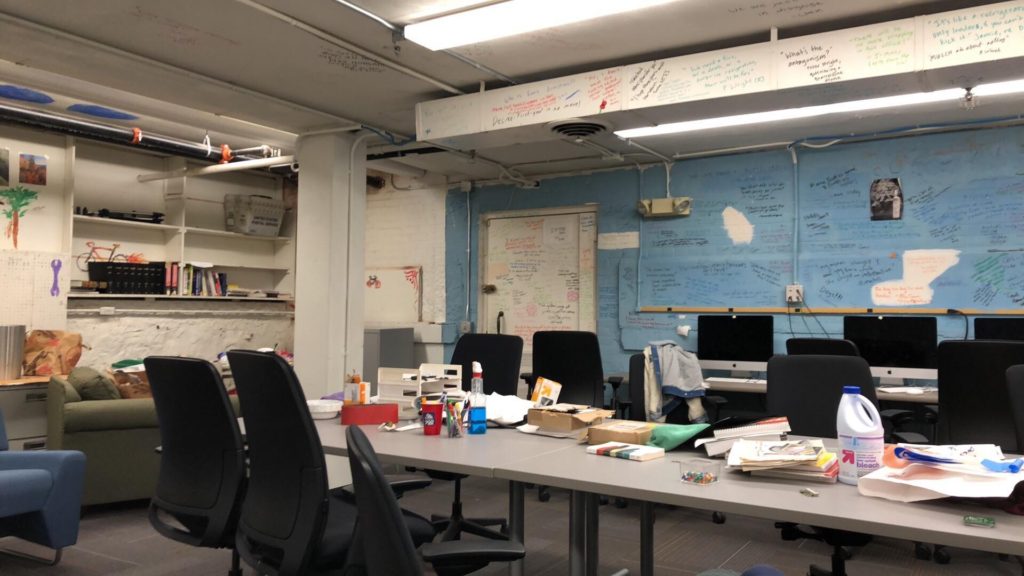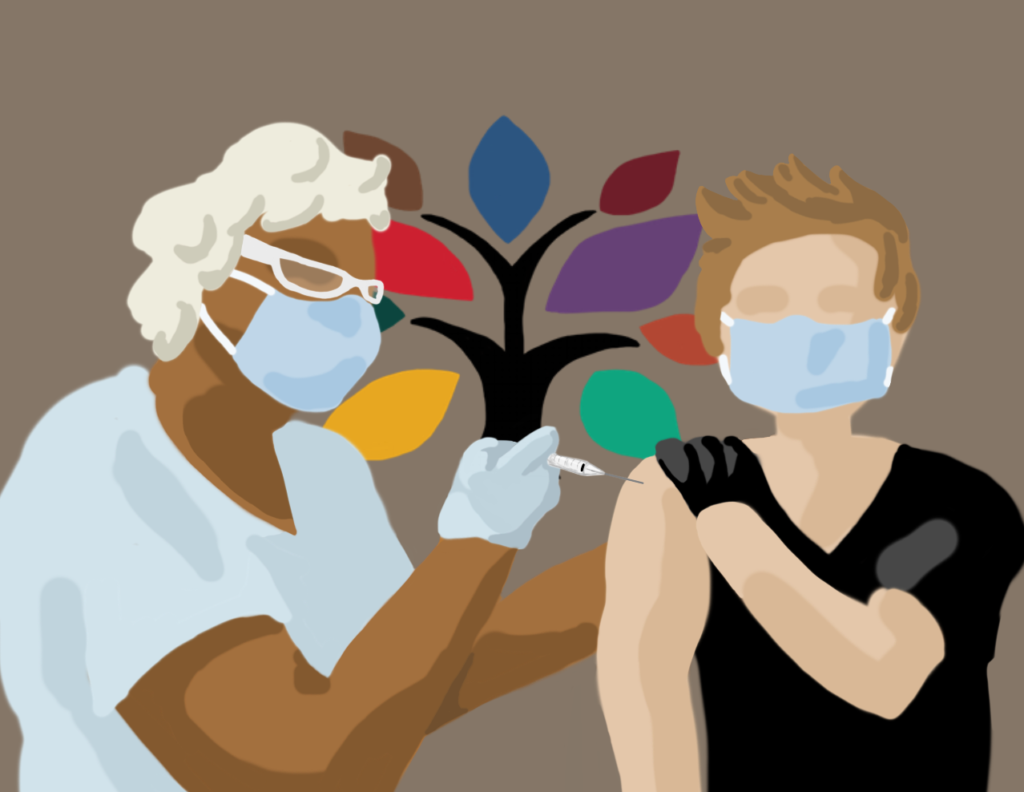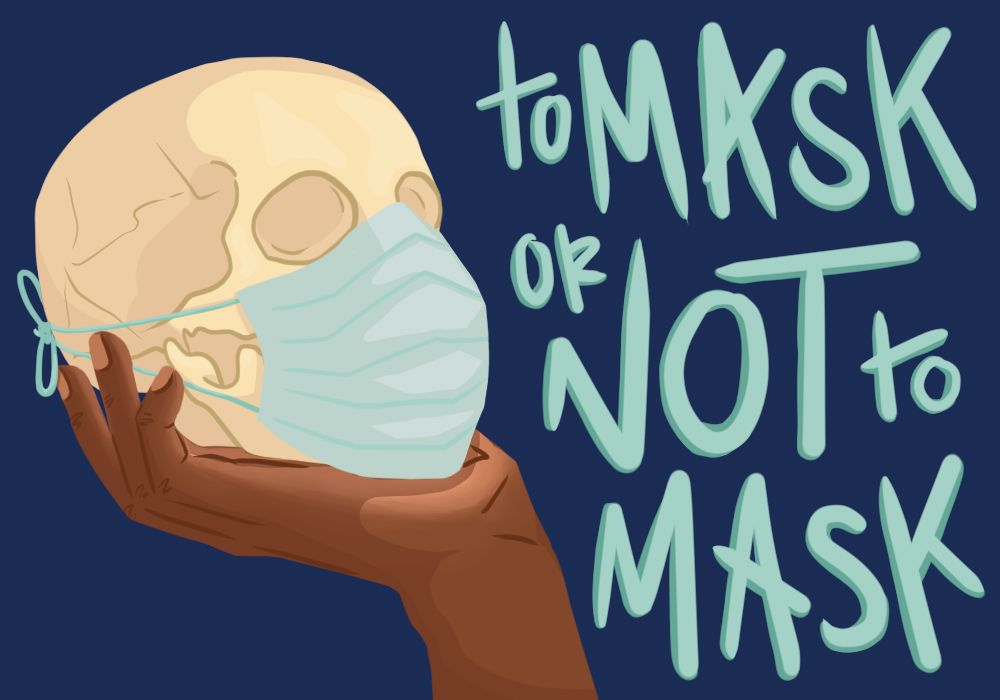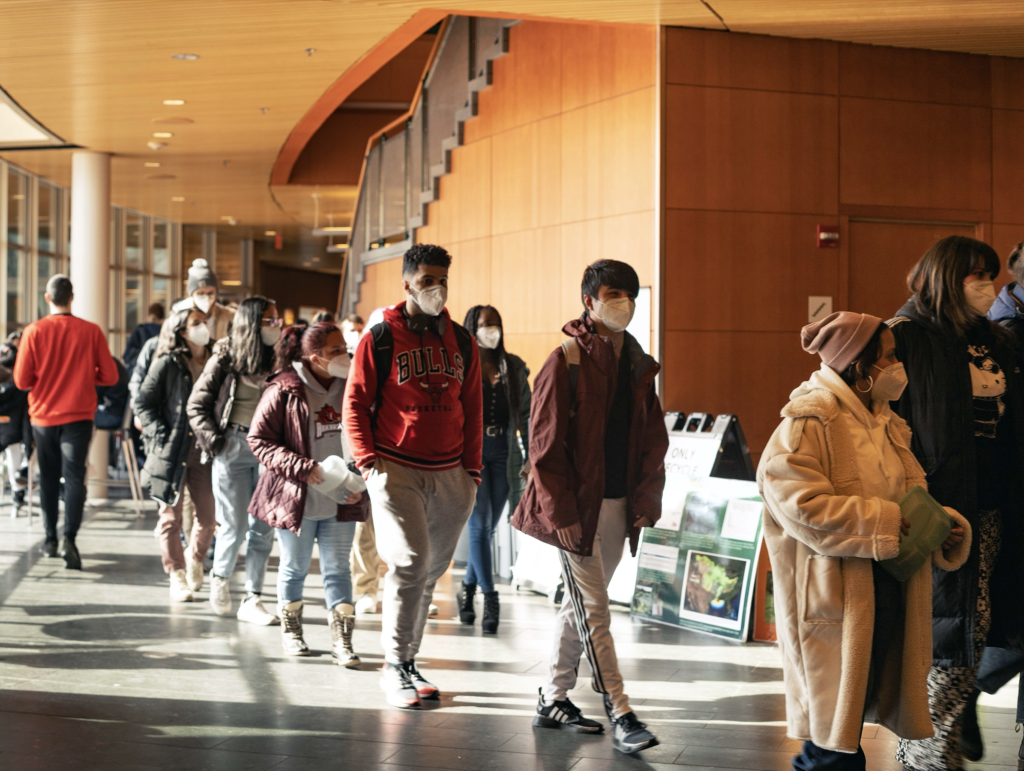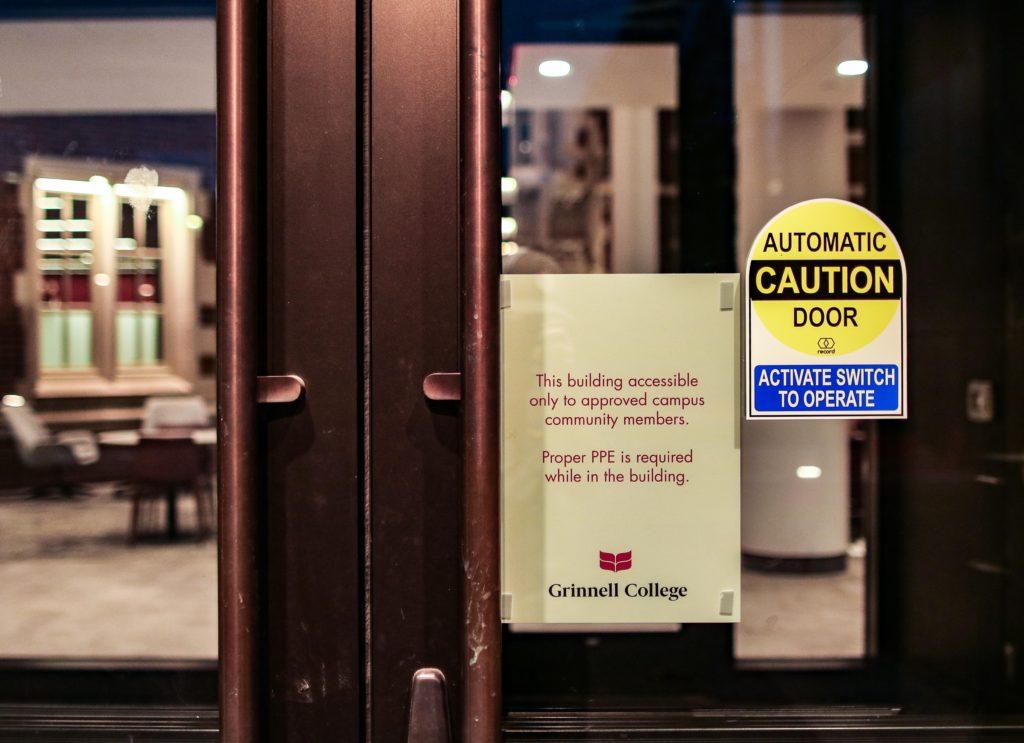As COVID-19 continues to spread, many local newspapers have been forced to close due to loss of revenue. Gannet, the company whose papers include the Des Moines Register and the Iowa City Press-Citizen, recently announced furloughs at more than 100 of their newspapers, requiring certain employees making more than $38,000 annually to take one week of unpaid leave.
College newspapers, however, are often volunteer-based student-run outlets with no such financial constraints, leaving them an important news source for communities nationwide in this time of crisis. Editors of student newspapers now face the challenge of balancing their new academic and social environments while being propelled into previously uncharted areas of coverage.
Morgan Doherty, co-Editor in Chief of Macalester College’s independent student newspaper The Mac Weekly in St. Paul, Minn., said that her first priority was sending an email to the staff emphasizing support for anyone who might be struggling logistically or emotionally.
“For us, it was mostly just about making sure we could still communicate with the staff now that people are spread out across the country,” said Doherty. “[Our staff] are prepared to report in unconventional situations and [they] are interested in going after stories like this, so we had enthusiastic participation right away.”
Within days of their semester becoming remote, stories about how Macalester’s community was responding to COVID-19 were being posted on their website, covering the campus shut-down and impact on community businesses, as well as opinion pieces from students.
“We were also hoping to have a very enterprising semester,” Doherty said, referencing The Mac Weekly’s newly launched live interview series. The staff planned to cap off the semester with a live interview with Macalester President Brian Rosenburg, who announced his retirement after 17 years at the college. Editors are now working with college administration to move the interview online.
Media editor Kori Suzuki adapted a podcast series to specifically discuss COVID-19’s impact on the Macalester community. Despite the difference from routine, “It’s exciting to get to publish some of these alternative media opportunities,” said Doherty.
This flexibility is the foundation of college newspapers’ ability to adapt and continue with their coverage amidst ever changing circumstances. Even before the pandemic hit, the national closure of local outlets over the past decade has left some college newspapers as the only sources of news in their communities, such as The Michigan Daily, the independent newspaper of the University of Michigan which covers Ann Arbor.
Benjy Renton, Editor at Large for The Middlebury Campus at Middlebury College in Vermont, said that innovation is critical for college journalists amid COVID-19.
“People have been forced to come up with creative solutions and other ways to cover their communities when they’re no longer on campus, [and] now that we no longer have the print deadline, we can be more flexible with when our stories are published,” he said. “[It is] kind of like a coverage-as-it-happens model instead of producing the news for a set time each week.”
Like at The Mac Weekly, editors at The Middlebury Campus are also turning to alternative forms of news coverage to encourage engagement from students and community members.
“We launched something called ‘The Off-Campus Project,’ [which] is designed to capture some sort of vignettes about what peoples’ experiences are in the current state that they’re in, where they are reporting from, and how COVID-19 has impacted their lives,” said Renton.
While students, faculty, alumni and parents continue to respond to the Off-Campus Project, editors at Middlebury are also planning an online version of their annual debate for student government president, which is traditionally moderated by the newspaper’s editor in chief.
“We’re hoping to make the paper a way for people to be brought together in these times,” said Renton. “And whether that’s launching these projects [or] hosting a webinar or online activity, … those kinds of activities I think will definitely bring the community together.”
Community building and collaboration have also been key for Kaylie Mclaughlin, Editor in Chief of the Kansas State Collegian at Kansas State University. The Collegian normally publishes print editions three times each week, but Mclaughlin moved the paper completely online following news of the campus closure.
This year McLaughlin had prioritized strengthening the Collegian’s online presence to maximize engagement. “My project [was] relaunching the website, redesigning it and pushing social media hard,” said Mclaughlin. “And I’m so glad that I did that, because it made this time a little bit easier,” she said.
Mclaughlin also noted that her ability to track online engagement is reassuring; the Collegian has been reaching about 17,000 readers weekly.
Despite the “chaos” that COVID-19 has caused, there have been silver linings, according to Mclaughlin. “[Kansas State] has a lot of student media publications, and this time has allowed for a lot more collaboration,” she said, specifically referencing work with the campus television station. “We’ve [also] enhanced our partnership with the journalism school … so that a lot of our content coming through the website right now is written by journalism students, not necessarily Collegian staffers.”
Amidst all the coverage, however, student journalists have also had a unique opportunity to reflect on the current global state of affairs. “It’s definitely been a huge learning experience, but [it’s] also a weird thing to know that you’re living through history and that you’re actively keeping the historical record,” said Mclaughlin.
Mclaughlin also added that people should not be surprised by student journalist’s continued coverage. “I haven’t talked to one college newspaper editor who questioned whether or not they would cover COVID-19,” said Mclaughlin. “We’re not going to put our job on the back burner because the news is hard. The news is very hard, and it’s difficult to write about, but [we] have to do it.”


















































